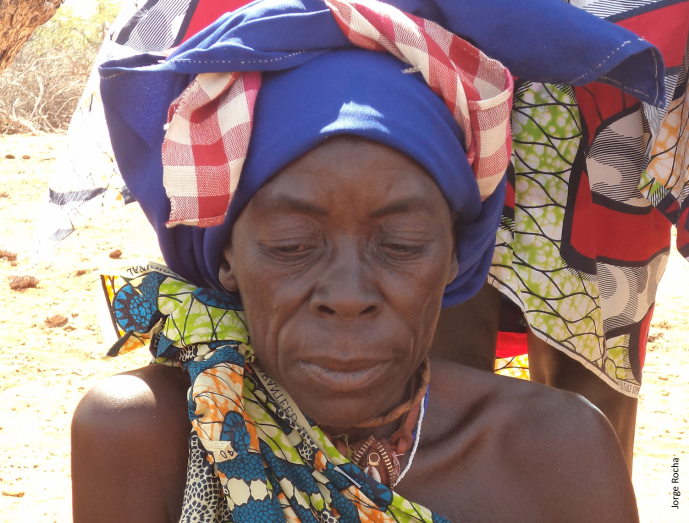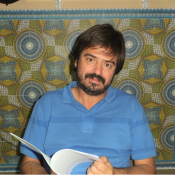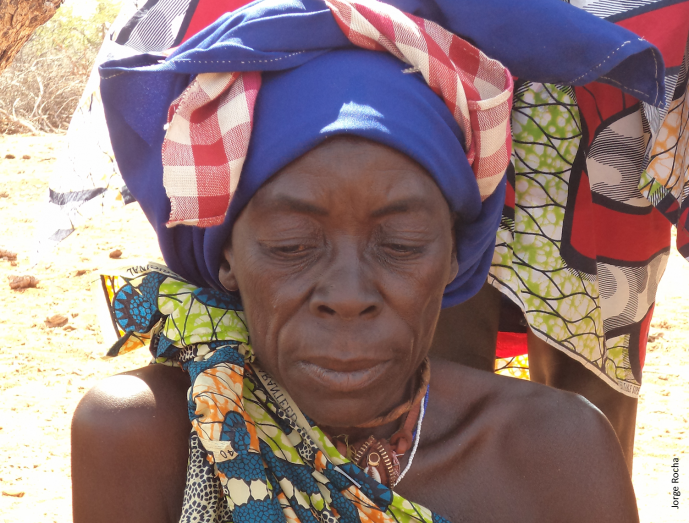Towards a multidisciplinary population profiling of southern Angola: a key region for understanding human settlement in southern Africa
The goal of this project is to infer the population history that gave rise to the current patterns of human diversity in southern Angola, by using a multidisciplinary approach with a strong emphasis on population genetics. Specifically, we will explore the working hypothesis that the unique combination of linguistic, cultural and biological features observed in the region was shaped by three major confluent migratory movements that may explain the present human variability in the wider area of southern Africa: i) an early occupation by Khoisan foragers; ii) a more recent intrusion of pre-Bantu pastoralist peoples from East Africa, speaking Khoe-Kwadi languages and introducing longhorn taurine cattle and fat-tailed sheep; iii) a subsequent arrival of Bantu- speaking groups relying to various degrees on agricultural and pastoral lifeways based on different breeds of livestock.
The importance of southern Angola for understanding human settlement in southern Africa is due to a number of key features that provide an ideal framework to examine the history and consequences of population contact. The region is linguistically and bio-culturally very diverse, with overlapping population strata that include forager click-speaking Khoisan groups, Bantu-speaking peoples with different combinations of agricultural and pastoral subsistence, and remnant populations that are likely to descend from Pre-Bantu herders that once spoke the extinct Kwadi branch of the Khoe-Kwadi language family.
The sharpness of the often assumed dichotomy between hunter-gatherer Khoisan peoples and their food-producing neighbors, the origin and migration routes of the ancestors of southern Bantu peoples, or the role played by Pre-Bantu herders in the emergence of the southwestern African pastoral scene- all are unsolved questions whose resolution critically depends on the thorough characterization of multiple dimensions of human variation in southern Angola. Since little effort has been done so far to perform such study, we propose to undertake a multidisciplinary initiative based on contributions from human population genetics, livestock genetics and linguistics, in order to obtain for the first time a comprehensive profile of six representative populations from the provinces of Namibe, Huíla and Kunene: i) Va-Sekele; ii) Va-Twa; iii) Nyaneka-Nkhumbi; iv) Ambo; v) Himba; vi) Kuvale.
The human genetics study will play a major role in generating likely evolutionary scenarios of population movement, demographic change and admixture, which will be jointly considered with data from other disciplines. Benefitting from recent developments in high-throughput sequencing and typing technologies, the study will provide a thorough characterization of human genetic variation based on the sequencing of complete mtDNA genomes, target sequencing of a 500kb segment of Y chromosome and typing of approximately 600,000 single nucleotide polymorphisms, specifically selected for human micro-evolutionary studies.
Given the importance of pastoralism in the subsistence of southern Angolan peoples, and the close association of livestock species to human migration, we further propose to use a multi-marker approach to study the genetic variation of the poorly characterized sheep and cattle populations held by pastoralist and agro-pastoralist populations to be included in the present study. The contribution of the linguistic component is also crucial, since some of the most relevant historical hypotheses about the peopling of southern Africa have been based on the analysis of language data. The linguistic study will seek to improve documentation on language contact and interference, which are predicted outcomes of the admixture scenarios implied by our working hypothesis. The multidisciplinary nature of the project and its conceptual focus on admixture are highly innovative and will provide a significant contribution towards a unified picture of the peopling of southern Africa, with broad implications to the understanding of human settlement. The research team is formed by specialists in the disciplines involved and will develop a collaborative effort with the Instituto Superior de Ciências da Educação (ISCED-Huíla) from Lubango (Huíla) with a strong educational and formative component that will directly benefit our local partners.


